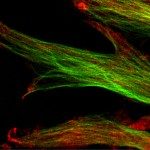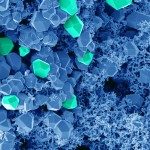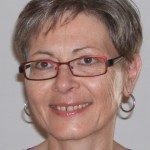A post-doctoral position is available under the supervision of Dr. Françoise Norel in the lab “Biochemistry of Macromolecular Interactions, CNRS UMR3528” at the Institut Pasteur, to study the remodeling of metabolism and ionome of quiescent Salmonella by the stress sigma factor SigmaS.
Overview
The entry into a non-actively growing/quiescent state is a common strategy used by bacteria to survive under stressful conditions, including antibiotic treatment. Our group aims at understanding key molecular and physiological determinants that orchestrate survival during this temporary arrest of proliferation and revival when conditions again become favorable. In the wide host-range foodborne pathogen Salmonella enterica serovar Typhimurium and other Gram-negative bacteria, this arrest of proliferation induces the expression of the alternative sigma subunit of RNA polymerase, SigmaS, which remodels global gene expression to reshape the cell physiology and ensure survival under starvation and various stress conditions. Our integrated transcriptomics, proteomics and physiological analyses of the SigmaS response in S. Typhimurium have revealed extensive reprogramming of membrane and metabolic functions that might confer fitness advantages to quiescent cells and/or populations.
https://research.pasteur.fr/en/team/group-francoise-norel-bozouklian/
Project
The project will focus on two important but poorly understood (metabolism) or unexplored (ion homeostasis) aspects of bacterial quiescence, using analytical approaches (physiology, biochemistry) and quantitative global analyses (proteome, metabolome). We expect this project to reveal key physiological and metabolic features driving the persistence and ability to wake up of quiescent cells. Relevant collaborations are in place.
Application details
The position is financed by the ANR (The French national research granting agency) for 30 months and is expected to start in July 2020 (flexible).
Highly motivated candidates should have a PhD in the biological sciences and strong background in molecular microbiology. Prior experience in fluorescence microscopy/cell imaging and molecular biology is highly desirable. Experience in flow cytometry, bioinformatics and statistics will be positively evaluated. The candidate should have less than two years experience after his/her Ph.D.
Applicants should send a cover letter with a brief statement of research experience, technical expertise and interests, a detailed CV and contact information of three referees to Françoise Norel (francoise.norel@pasteur.fr



